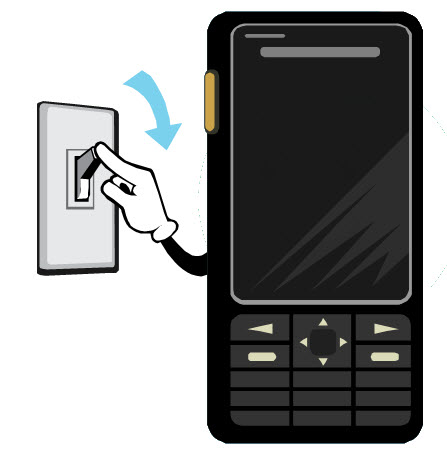ABI Research releases new report concerning growth of NFC-based mobile payments
NFC-based mobile payments are expected to see a massive boom in the coming years, according to a new report from ABI Research. Mobile commerce has been growing in popularity with consumers, leading many to believe that mobile payments are far more convenient than traditional forms of commerce. Consumers are gaining access to a growing variety of NFC-enabled mobile devices, which is boosting their exposure to mobile commerce. ABI Research predicts that this exposure will drive growth behind the burgeoning industry.
Report shows growth despite concerns regarding NFC technology
According to the firm’s report, the total value of NFC-based mobile payments will reach $100 billion by 2016. This prediction accounts for the swelling tide of criticism that has been directed at NFC technology recently. Critics of the technology claim that it is not safe enough for mobile commerce, with others suggesting that it is simply not capable of handling the needs  of consumers. While some of these concerns have slowed the progress of the mobile commerce industry, which is heavily based on NFC technology, ABI Research expects that the industry will continue to grow well into the future.
of consumers. While some of these concerns have slowed the progress of the mobile commerce industry, which is heavily based on NFC technology, ABI Research expects that the industry will continue to grow well into the future.
Predictions may be derailed by new technologies and platforms
The report shows that NFC-based mobile payments are currently valued at $4 billion for this year. ABI Research estimates that this will blossom to $191 billion by the end of 2017. After this point, mobile commerce may see its progress and expansion slow somewhat, but continue to grow nonetheless. It is possible for this prediction to be derailed due to the emergence of a new technology or mobile payment platform that does not use NFC technology, a prospect that is becoming more possible with every passing day.
More companies beginning to look for alternative to NFC technology
Because of the problems associated with NFC technology, companies that are interested in mobile commerce, such as PayPal and Apple, are developing their own platforms for mobile payments. These companies are forgoing the use of NFC technology to allow consumers to make payments with mobile devices in a different way. If these technologies manage to capture the interest of consumers at large, the growth of NFC-based mobile payments may turn out very different than what ABI Research predicts.
NFC technology not so easily exploited when it is turned off
NFC technology is becoming a more common feature in mobile devices. The technology is used often in mobile commerce and advertising as a way to facilitate convenient services and reach out to consumers. For these purposes, NFC technology has proven itself quite effective. The technology is, however, exposed to the risk of exploitation from hackers. It is also a major drain on a smart phone’s battery, especially if it is used for mobile commerce and social networking.
Turning off NFC could save battery power
For those with NFC-enabled Android mobile devices, turning off NFC technology is fairly simple. Those that do not conduct mobile payments or engage in data exchange regularly can actually see some major benefits from turning off the NFC capabilities of their mobile device when they do not plan to use them. Turning off the NFC technology embedded in the phone can help reduce the strain on the mobile device’s batter, allowing it to remain charged for a significantly longer period of time. Turning of NFC connectivity can actually make a mobile device much safer as well.
much safer as well.
Security boost through turning off NFC
NFC technology is quickly becoming notorious for the lackluster security features that are native to it. The technology is completely benign in the sense that it does not have robust security features or any glaring security faults that could put a user’s information at risk. The applications and services that rely on NFC technology, however, do have some serious security shortfalls that do put this information at risk. When consumers do not plan to make use of these applications and services, turning off the NFC capabilities of their mobile device may help mitigate the risks associated with mobile commerce and other NFC-based services.
Battery mileage varies from device to device, but security still a serious issue
The impact NFC technology has on the life of a battery is highly dependent on the mobile device in which the technology is installed. Personal tests are advised for those that want to get a better understanding of what the technology will do to the battery of their own device. Because NFC technology works at very short range, the security implications can often be overblown. Nonetheless, the security issues inherent with many NFC services and applications are still cause for concern and consumer should take steps to protect themselves.
 of consumers. While some of these concerns have slowed the progress of the mobile commerce industry, which is heavily based on NFC technology, ABI Research expects that the industry will continue to grow well into the future.
of consumers. While some of these concerns have slowed the progress of the mobile commerce industry, which is heavily based on NFC technology, ABI Research expects that the industry will continue to grow well into the future.
 much safer as well.
much safer as well.